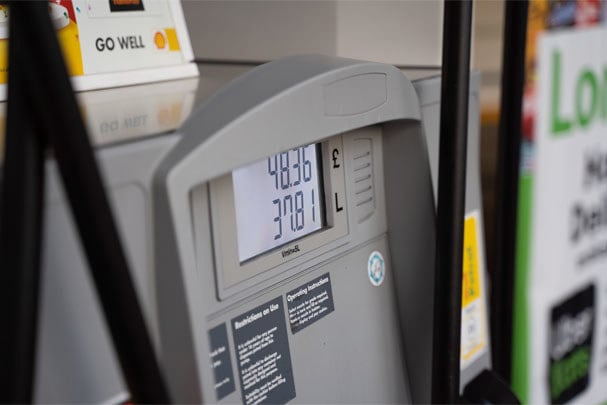
Nationwide Vehicle Contracts highlights the benefits of leasing a fuel-efficient car.
As motorists continue to grapple with environmental issues and rising fuel costs, fuel efficiency has become a top priority for many car buyers in the UK.
Leasing a fuel-efficient car is a fantastic way to reduce your carbon footprint and save money on fuel costs.
In this blog, car leasing experts from Nationwide Vehicle Contracts explore the benefits of leasing a fuel-efficient car and how it can be a smart choice for both individuals and businesses.
What is a Fuel-Efficient Car?
A fuel-efficient car consumes less fuel than other cars to drive the same number of miles. Fuel efficiency is measured in miles per gallon (MPG), which is the distance you can drive on one gallon of fuel. As a driver, you want as high an MPG as possible so you don't have to keep filling your car with fuel.
There's a range of ways manufacturers make their cars more fuel efficient, such as:
- Making the car lighter, reducing the fuel needed to propel the car forward.
- Making the car more aerodynamic to reduce the amount of wind resistance.
- Adoption of multi-speed transmissions, such as eight and nine-speed automatics. This helps keep the engine operating at its best with the least fuel consumption.
As well as the above, the development of electric power has boosted fuel economy. Drivers now have various options, such as electric, hybrid, and plug-in hybrid cars.
Electric cars – An electric vehicle is powered completely by an electric motor. Unlike a traditional combustion engine which you fill up with fuel, electric cars are charged by plugging them into a charger which takes electricity from the grid.
Hybrid cars – Full-hybrid cars combine an electric motor and battery pack with a traditional gasoline engine. A hybrid car can purely be powered by its electric motor, but this is usually at speeds of below 15mph. A practical benefit of a hybrid car is they don't need to be charged; the battery recharges when the car is driving.
Plug-in hybrids – A plug-in hybrid is like a regular hybrid but has a significantly bigger battery. The car must be plugged into a power source to charge the battery.
Mild-hybrid cars – Mild hybrid cars combine a combustion engine with a small electric motor to help improve fuel economy and reduce emissions. The car cannot run purely off electric power; rather, the motor is used to help improve the engine's efficiency.
Cost Savings of Leasing a Fuel-Efficient Car

If you've got a traditional petrol or diesel engine, the more fuel-efficient the car, the less money you'll spend on fuel. Although this may sound obvious, the amount of money you could save often surprises motorists that drive an inefficient car.
Let's look at the savings you could make a year when driving a petrol car for 8,000 miles a year with varying fuel consumption levels.
Kia Stinger (29.4mpg) - £1840.50 per year
Audi A4 Saloon (41.5mpg) - £1270.85 per year
Skoda Octavia (51.8mpg) - £1026.46 per year
Environmental Benefits of Leasing a Fuel-Efficient Car

As well as keeping your money in your pocket, leasing a fuel-efficient car is also great for the environment. The more fuel efficient a car is, the fewer tailpipe emissions it releases into the atmosphere, contributing to less air pollution and less carbon dioxide being released.
Also, as fuel-efficient cars use less fuel, it helps contribute towards us moving away from fossil fuels. The less we use fossil fuels, the less carbon dioxide and greenhouse gases are released into the air.
Environmental concerns are also at the forefront of the UK Government, leading to the increase of emission-free driving zones across the UK. In cities, you may find either an Ultra-Low Emissions Zone, a Clean Air Zone, or a Low Emissions Zone.
Ultra-Low Emissions Zone (ULEZ) – ULEZs are zones where all vehicles must meet strict emission requirements or they'll face a daily travel charge. These zones are designed to encourage people to drive more fuel-efficient cars in big cities such as London.
Clean Air Zone (CAZ) – No vehicles are banned from driving in Clean Air Zones, but they are implemented to improve air quality by discouraging vehicles with high emissions from entering. Like ULEZ's, cars over a certain number of emissions will face a daily charge.
Low Emissions Zone (LEZ) – A Low Emission Zone is an area where only low-emission vehicles can travel through. High-polluting vehicles are discouraged from using the zone, and if they do, they'll have to pay a daily charge.
For more information on the three zones, check out our comprehensive guide on Ultra-Low Emission Zones.
Other Benefits of Leasing a Fuel-Efficient Car

Lower tax rates – Vehicle tax rates in the UK are based on engine size or fuel type and carbon dioxide emissions. The tax will be calculated for cars registered after 2017 based on their CO2 emissions, with cars that produce no CO2 exempt from paying tax.
The more fuel efficient and lower emissions your lease car has, the less road tax you'll pay. On the other hand, if you have an electric car that releases no CO2, you don't have to pay any tax.
Reduced congestion charges – If you drive in a city with an emissions zone, it's probably become the bane of your life. The London Congestion charge costs £15 a day for cars that fall outside the emissions standard, so it's a costly payment if driving three or four days a week.
You are exempt from the charge if you've got a car that emits zero emissions. Also, you don't have to experience the panic of getting home and realising you haven't paid your congestion charge!
Access to low emission zones – Low emissions zones discourage cars with high emissions from entering the zone by implementing a daily charge. Excluding London and the Scottish cities, LEZ's only impact buses and heavy vehicles. However, it's expected they will be extended to all high-polluting vehicles.
Potential for higher resale value – Because fuel-efficient vehicles are more economical, their engines don't go through the same wear and tear as their combustion counterparts. This means the engine remains in better condition for your lease, contributing to the vehicle's value for longer.
Conclusion
Leasing a fuel-efficient car is a must for those looking to save money and reduce their carbon footprint. Whether you choose a more efficient combustion engine or an electric or hybrid car, you'll quickly realise the huge financial benefits of fuel-efficient cars.
You'll also be contributing towards offsetting climate change. Fuel-efficient cars decrease our reliance on fossil fuels and release significantly fewer tailpipe emissions, such as carbon dioxide and greenhouse gases.
Finally, you won't have to worry about paying daily charges when travelling through low-emission zones. This will save you money in the long term but also eliminate the stress of ensuring you've paid your daily charge or checking whether or not you meet the emissions standards.
Do you drive a fuel-efficient car? Nationwide Vehicle Contracts produce regular blogs on various topics, from How To Save Money On Car Maintenance to Ten Ways To Save Money On Fuel.
For more information on fuel-efficient cars, check out the AA's Fuel Efficient Cars: Diesel, petrol, electric, or hybrid? or the RAC's Should I get a hybrid, plug-in hybrid or electric car?
Originally posted: 27th April 2023

